Hybrid/Flipped Learning Using a DELTA Grant
Team Collaborates to Redesign Class Time to Better Support Student Learning Goals
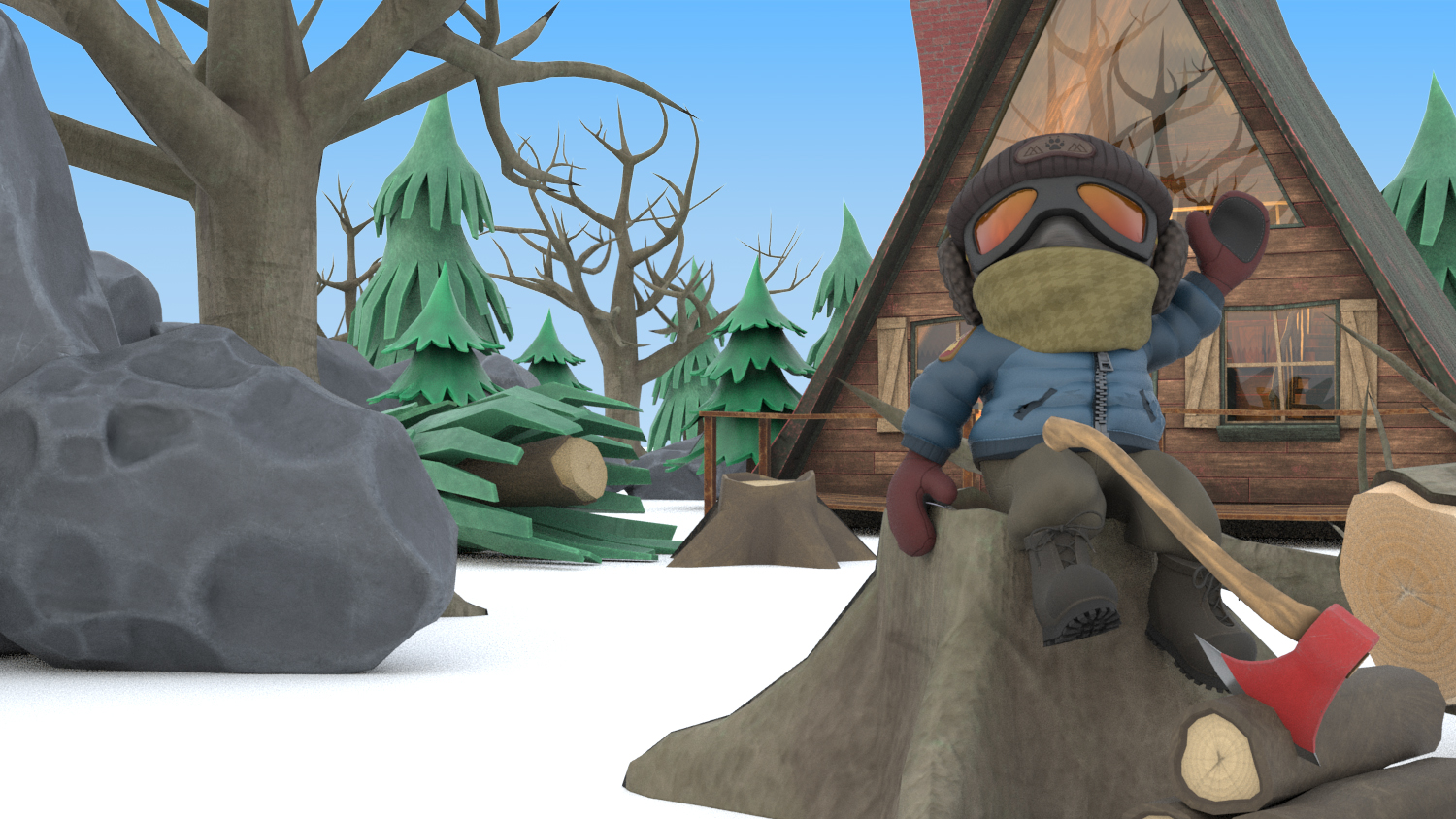
Assistant Teaching Professors Ignacio Dominguez and Alexander Card are quite familiar with the practical examples and active learning activities typically employed in a highly interactive game design course. Both teach in the Department of Computer Science (CSC) at NC State University. When working with CSC students for the required CSC 281: Foundations of Interactive Game Design course, however, they discerned a need for more class time to allow for deeper discussions, more nuanced analysis of existing games and iterations of game design choices.
Identifying the Instructional Challenges
Dominguez and Card noted that traditional lectures for CSC 281 took up most of the class time. Additionally, they realized that this particular CSC course is often well attended by students from all disciplines because it satisfies the interdisciplinary perspectives GED requirement. As such, the course hosts students from different backgrounds that include a wide range of previous technical expertise. To foster success for all enrolled students, the course content needed to account for students with little to no previous knowledge of computer science and game development topics.
As the course was originally designed, all students were expected to complete three game design development projects. Lectures, assignments and projects were organized as separate Moodle sections. And students were expected to streamline and manage their own workload and learning process, which often led to procrastination that ultimately affected the quality of their work.
Using the DELTA Course Design Grant to Provide Solutions
As principal investigators (PIs), Dominguez and Card worked with a team from DELTA using a Course Design Grant to redesign this class to use a flipped classroom model. DELTA staff worked with the instructors to allow more class time for game analysis and game design related activities.
The project team had the following goals for this grant:
- Redesign the course using the flipped classroom approach and the hybrid/flipped course design framework to allow more class time for game analysis and game design related activities.
- Develop online learning materials of game engines (PuzzleScript, Twine, and Unreal) to prepare students with diverse backgrounds to use those development tools in their projects.
- Improve the course project materials to guide students to use game design to drive their implementation and to provide easily accessible game assets for projects.
A hybrid/flipped course design framework conceptualizes the course learning process as sets of hybrid/flipped learning (HFL) cycles and self-regulated learning (SRL) cycles that are integrated with each other during the semester. HFL cycles help students develop knowledge and skills through hybrid/flipped learning steps, including online self-paced learning, in-class active learning, and learning review and integration. SRL cycles help students take ownership in hybrid/flipped learning through self-regulatory processes, including proactive planning, performance monitoring, and self-reflection.
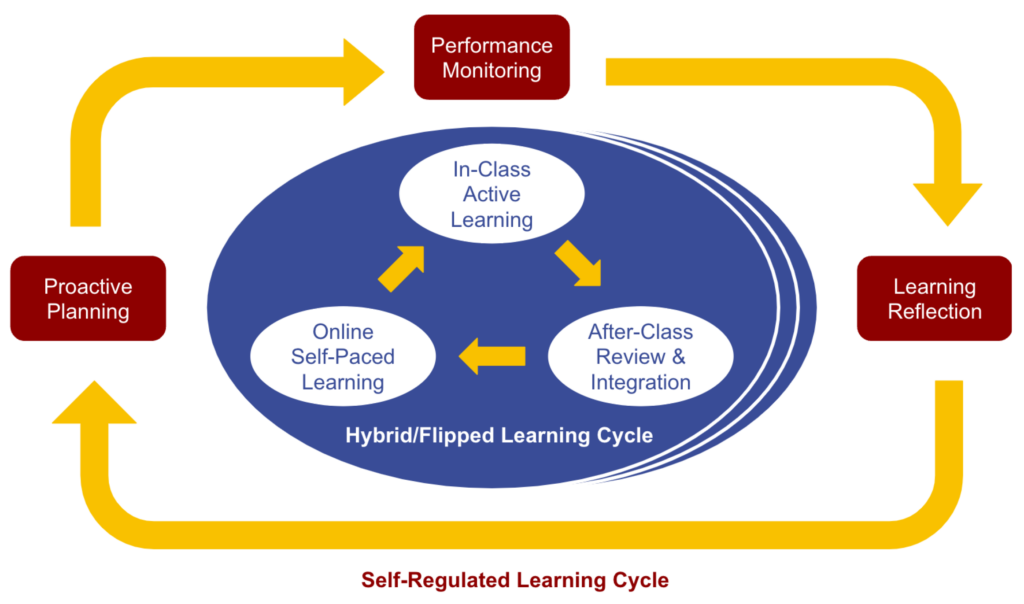
Delivering the Final Outcomes
According to Instructional Designer Yan Shen, the redesign allows students to begin each week with theoretical learning, then apply the new concepts in experiential learning through game play and reflection, and finally incorporate their concept of learning into their own game design projects. Students also learn the game engines using self-paced tutorials outside of class.
CSC 281 is now reorganized as 14 separate week-long flipped learning cycles, and each cycle contains materials and activities for the following four areas:
- Theoretical Learning involves watching and participating in interactive Playposit lecture videos about theoretical concepts and engaging in annotated reading activities using Perusall.
- Experiential Learning requires students to first play assigned or self-selected video games before class, then share thoughts about their game play experience during class, and finally write up game reflection journals based on prompts and in-class discussion. A reflection journal template was developed to guide students to apply the concepts and frameworks to analyze the game they have played.
- Project-Based Learning engages students in designing and developing a puzzle game and an interactive narrative individually, as well as creating a visual game in a small group throughout the semester. A game design document application was developed (led by the PIs) to guide students through the process of designing their visual game.
- Game Engine Tutorials provide self-paced modules and activities that prepare students to use the different game development tools for their project. 3D game assets were designed and developed for the Unreal game engine as part of the tutorial and as resources for students to use in their own projects.
The team also developed a course roadmap, learning reflection quizzes and weekly Tips for Success callout boxes to support students’ self-regulated planning, monitoring and reflection.
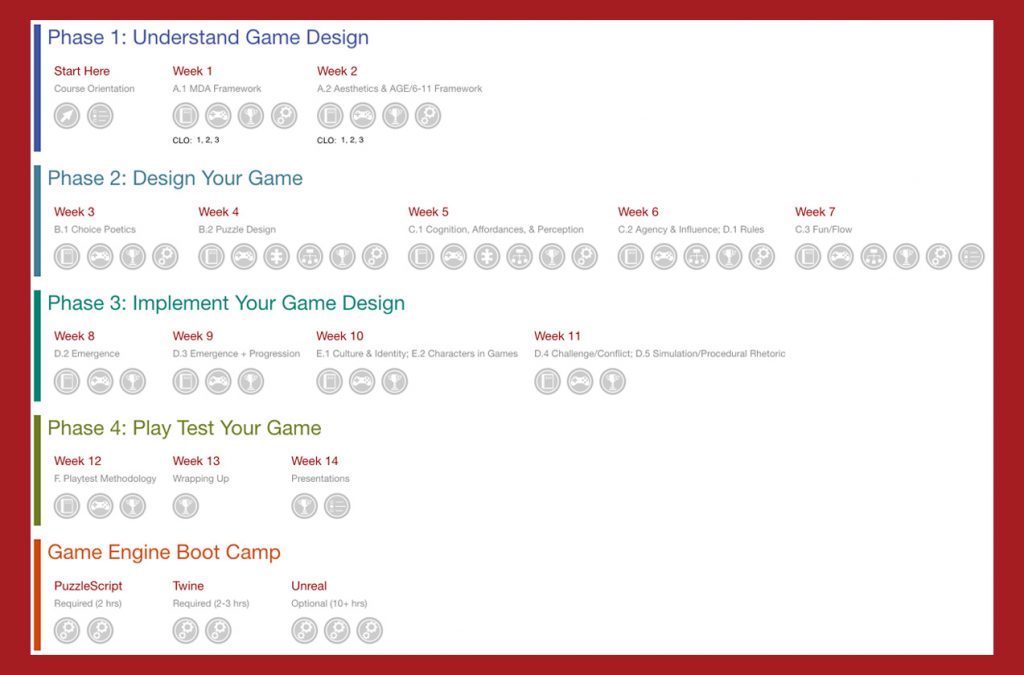
Multimedia Specialist Andrew Wiedner explained how the PIs had already developed a game design document application for students to manage the group projects and how the DELTA team worked with the PIs to reimplement an enhanced version of this application.
“First, we worked together to improve the organization of content and ensure that it aligned with course learning outcomes,” Wiedner said. “Then, the instructors took the lead in developing the actual application, with Lead Interaction Designer and Developer Ben Huckaby and myself working with them for media considerations. This collaboration resulted in an updated game design document app with a new application logo, a dark mode, a color scheme, and layout adjustments for easier reading and grading as well as better organization and additional features. In this case, the PIs handled implementing the functionality and hosting of the app while we provided design assistance.”
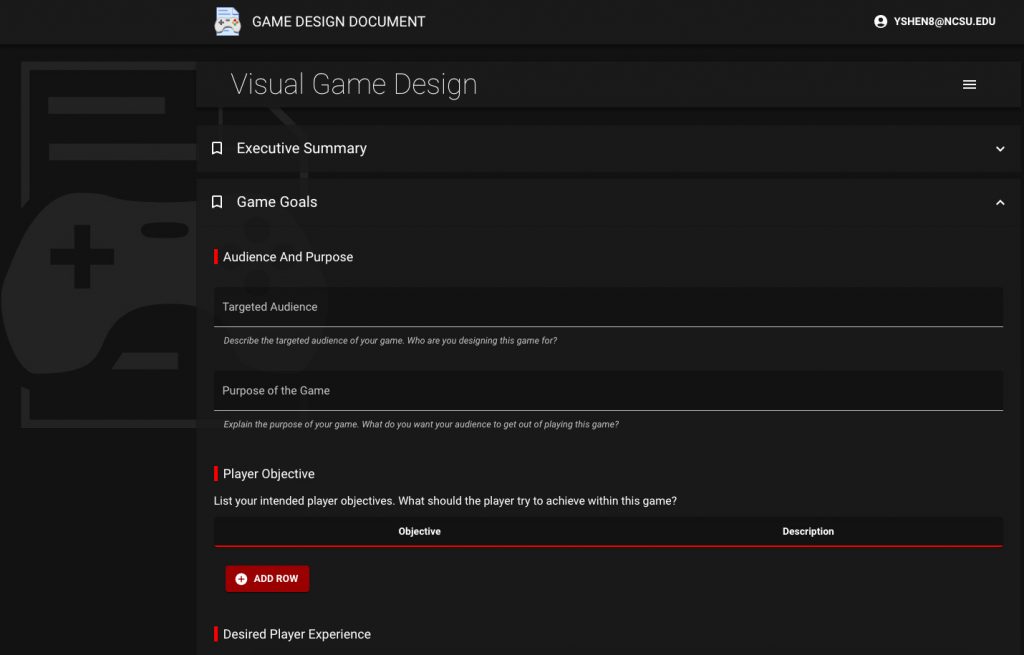
In this class, students work with a variety of game engines — two of which are required and one that is optional. An understanding of these engines is a key component of the program. As a result, the project team needed to develop tutorials for all three engines. PuzzleScript and Twine are the required engines, and Unreal, a 3D game engine, was optional for the completion of the final project.
The game engine tutorials were designed as self-paced online modules that students can complete on their own. Each engine has two to three modules with clear learning objectives that are aligned with tutorial videos and corresponding exercises that require students to use the newly learned technological skills to build game elements for a given design. These modules then prepare students with the necessary technical skills for the three game design projects.
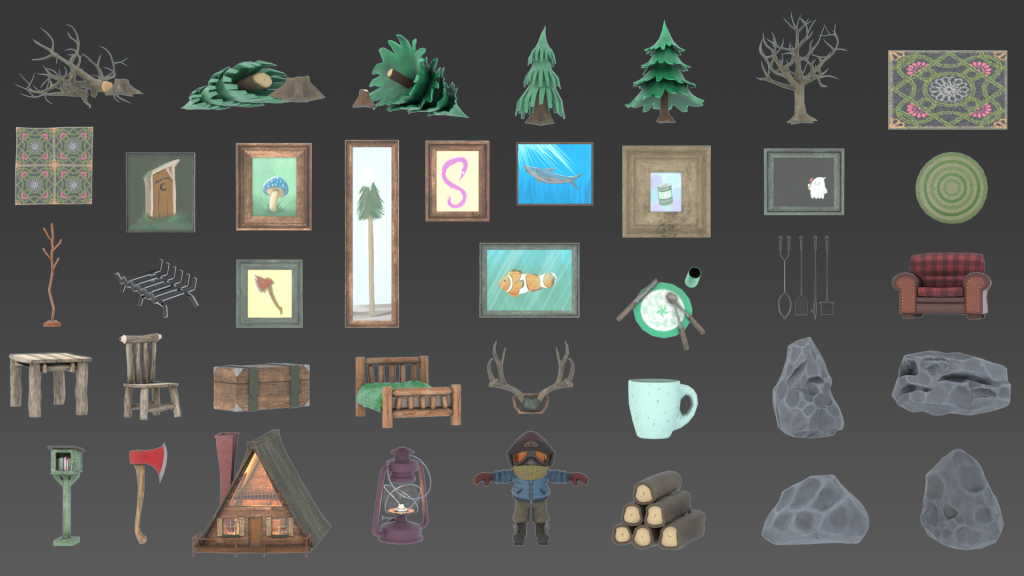
“For the Unreal tutorial, specifically, we needed to produce assets students could use both while learning the skills they needed to complete their project and while actually producing their final project,” Huckaby said. “This task meant a collaboration between instructional design and the PIs to design and monitor the learning and the tutorials. Additionally, a collaboration between media and the PIs, with assistance from project management, was essential to develop a list of assets and a priority-based timeline for completing them. We successfully managed four people working together to tackle a prioritized list of asset targets to meet our deliverables!”
Both Dominguez and Card are currently participating in a hybrid/flipped course design grant cohort to redesign two other computer science courses, which DELTA is piloting for the 2023-2024 academic year.
Dominguez shared more regarding his involvement with this project.
“This experience has been insightful and eye-opening.” Dominguez said. “I feel I have learned significantly about course design, about using Moodle, and discovered features in Moodle that I didn’t know existed. The meetings with DELTA are some of the most productive meetings I have had.”
In addition to Dominguez and Card as the PIs, members of the collaborative team from DELTA included Project Lead and Instructional Designer Yan Shen, Lead Media Designers Ben Huckaby and Andrew Wiedner, Media Contributors Matthew Castro and Stephen Waddell, and Media Project Manager Merranie Zellweger.
Using DELTA Grants to Improve Student Success
Do you need support to create or substantially revise a course? DELTA is here to help! We can collaborate with you to create instructional materials to expand or substantially revise an established course.
Learn more about DELTA Grants and how to apply.
- Categories:


